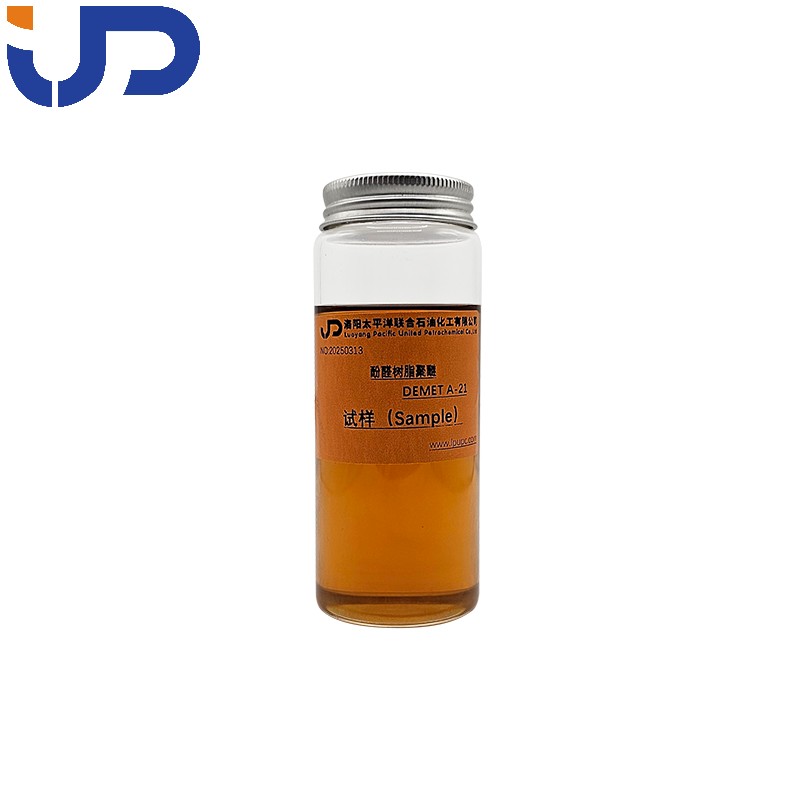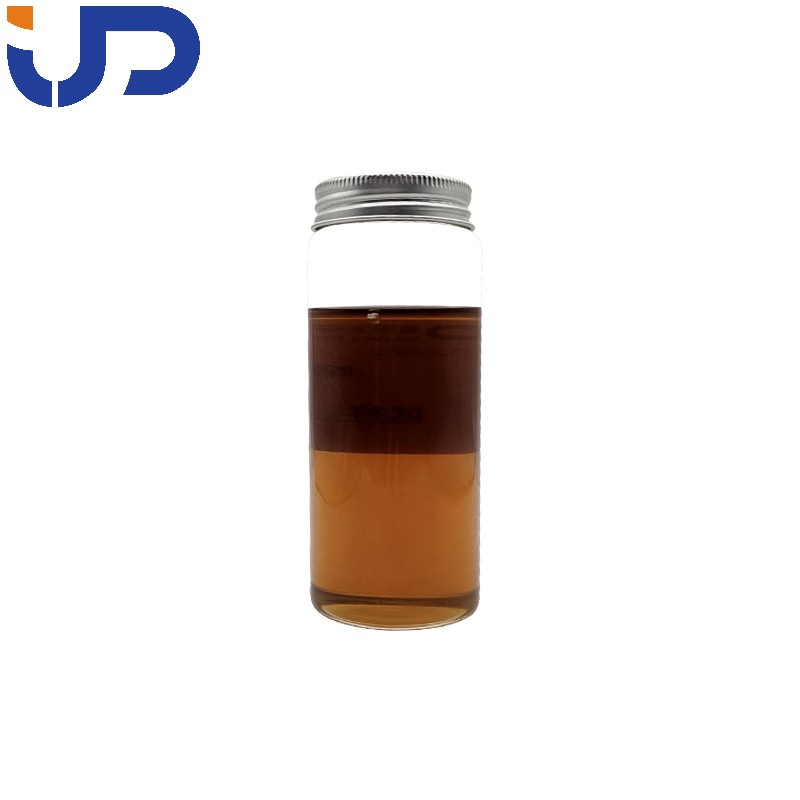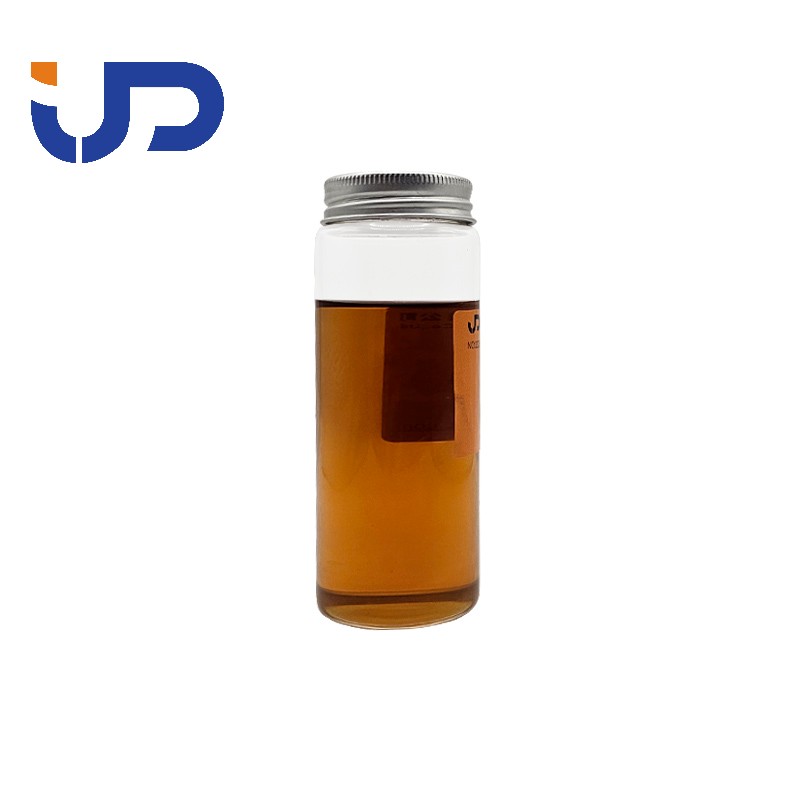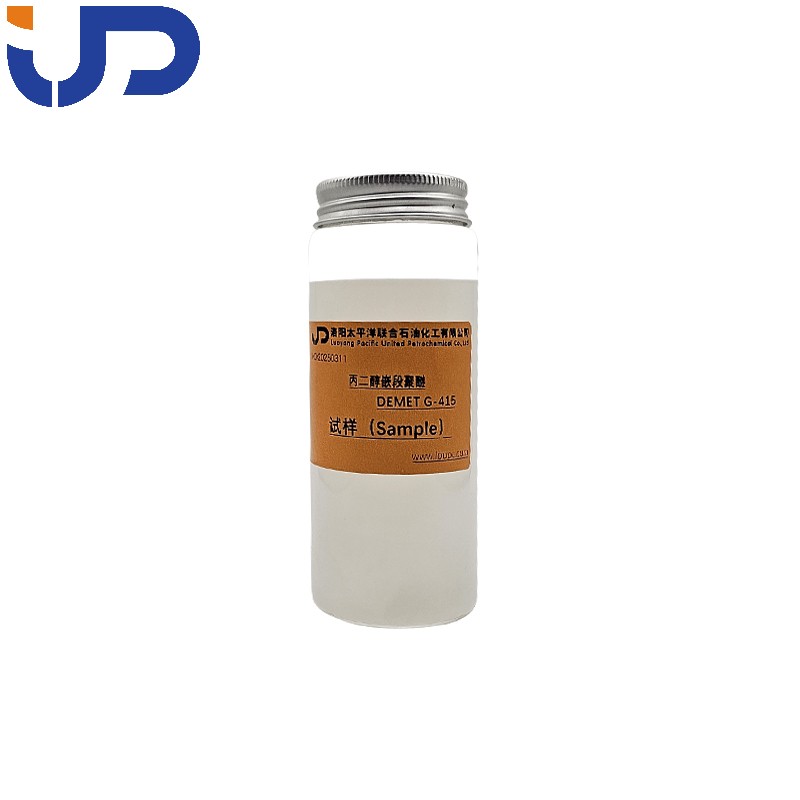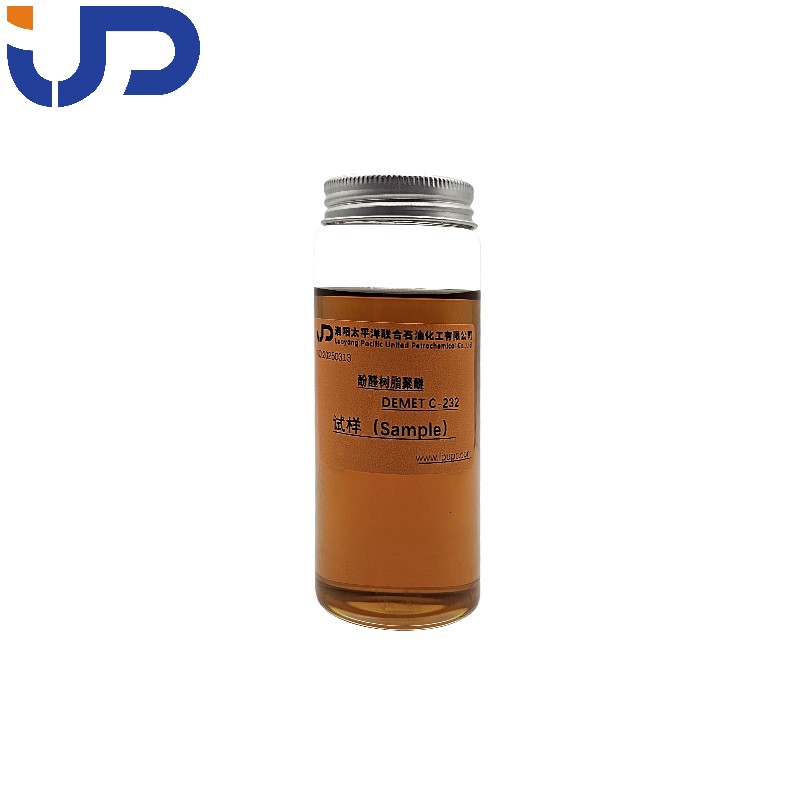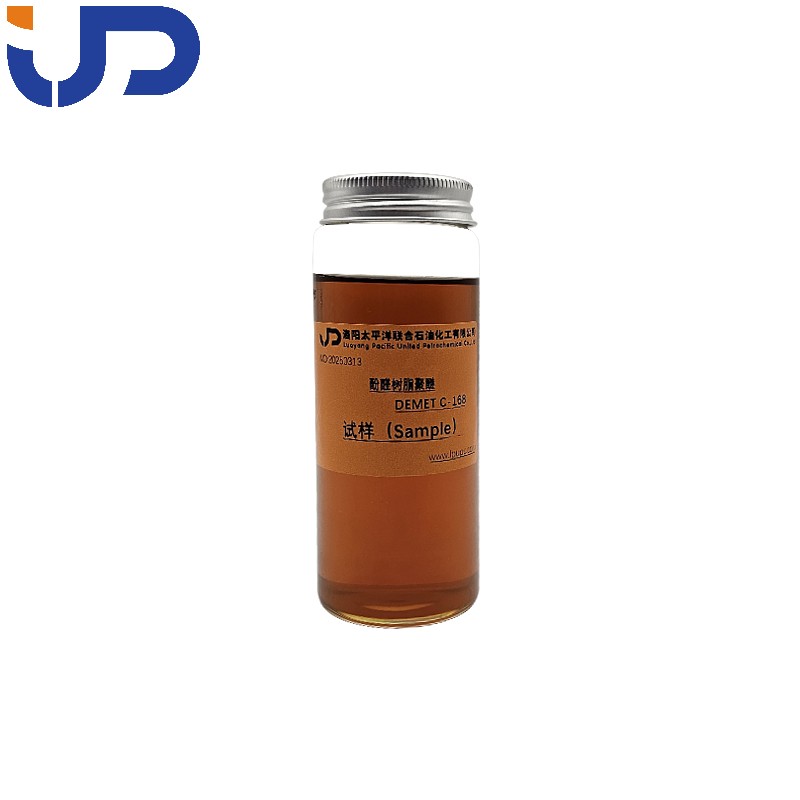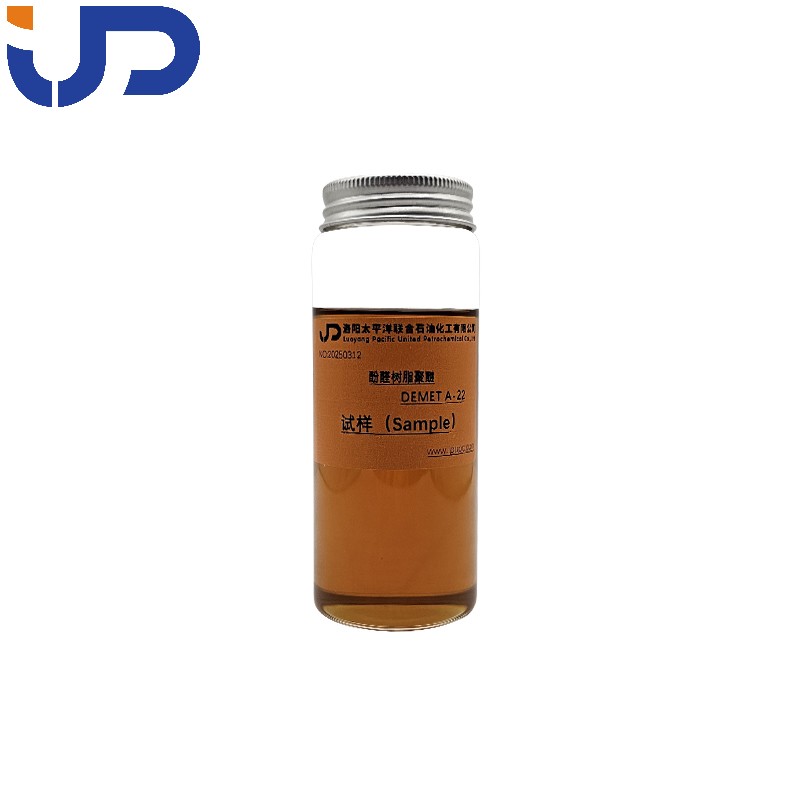Resin Oxyalkylate DEMET™ A-21
DEMET™ A-21 demulsifier is a liquid oxyalkylate category, utilized in the industrial market for crude oil desalting processes, particularly in exploration and upstream applications.
Appearance: Dark amber liquid at 25°C
Relative Solubility Number: 13.5 - 16.0
Water: ≤ 0.50 %
Description
What is Resin Oxyalkylate?
Resin oxyalkylates are chemical compounds produced by the oxyalkylation process, where alkylene oxides (such as ethylene oxide or propylene oxide) are reacted with resins or resin-like materials. The reaction incorporates alkylene oxide groups (e.g., ethoxy or propoxy groups) into the resin's structure, modifying its properties and enhancing its performance in various applications.
These resins can be either natural or synthetic and are typically used in industries where modifications to the resin’s properties—such as solubility, hardness, and stability—are required. The incorporation of alkylene oxides provides a way to adjust the hydrophobic or hydrophilic balance of the resin, making it more adaptable to different environments.
Features of Resin Oxyalkylate:
Improved Solubility: By adding alkylene oxide groups, resin oxyalkylates exhibit better solubility in water or oils, depending on the specific alkylene oxide used.
Enhanced Stability: Resin oxyalkylates tend to have improved chemical stability, including resistance to heat, acids, and bases, making them suitable for demanding industrial applications.
Modified Physical Properties: These compounds often have altered physical characteristics such as increased flexibility, improved adhesion, and better wetting properties due to the incorporation of the oxyalkylate groups.
Low Viscosity: Many resin oxyalkylates are liquids with low to moderate viscosity, making them easier to handle and incorporate into formulations.
Hydrophilic/Lipophilic Balance: Depending on the alkylene oxide used, resin oxyalkylates can exhibit a range of hydrophilic (water-attracting) to lipophilic (oil-attracting) properties. This balance makes them versatile in different industrial applications.
Increased Reactivity: The addition of alkylene oxide groups can increase the resin’s reactivity, making it useful in polymerization or cross-linking reactions.
Applications of Resin Oxyalkylate:
Surfactants and Emulsifiers: Resin oxyalkylates are commonly used in the formulation of surfactants and emulsifiers, which are essential for creating stable emulsions in products such as paints, coatings, and cosmetics.
Adhesives and Sealants: These resins are used in the production of adhesives and sealants, where their enhanced adhesion and flexibility properties improve product performance.
Oilfield Demulsifiers: In the oil and gas industry, resin oxyalkylates are used as demulsifiers to break oil-water emulsions during crude oil processing, helping to separate water from oil.
Paints and Coatings: Resin oxyalkylates are used in the formulation of paints, varnishes, and coatings due to their ability to improve the wetting and spreading properties, as well as the durability and adhesion of the final product.
Polymer and Resin Modification: These resins are used to modify the properties of other resins and polymers, making them more versatile for various industrial applications, such as in automotive and construction coatings.
Lubricants: They can be used as additives in lubricants, enhancing their performance by improving wetting, reducing friction, and increasing the overall stability of the lubricant.
Textile and Leather Industry: Resin oxyalkylates are employed as finishing agents in textiles and leather to improve properties like water resistance, softness, and durability.
Agricultural Chemicals: They are used in agrochemical formulations, helping to disperse active ingredients in herbicides, fungicides, and pesticides, ensuring more effective application.
Water Treatment: Resin oxyalkylates serve as additives in water treatment processes, where they can act as dispersants or demulsifiers in industrial wastewater treatment.
Price of Resin Oxyalkylate:
The price of resin oxyalkylates can vary based on factors such as:
Type of Resin and Alkylene Oxide: The choice of resin and the specific alkylene oxide used in the reaction will impact the price. For example, ethylene oxide-based resin oxyalkylates tend to be less expensive than those based on propylene oxide or more complex compounds.
Purity and Specifications: High-purity resin oxyalkylates with specific functional groups or advanced properties (e.g., non-toxicity, biodegradability) may come at a premium price.
Volume Purchased: Like many chemicals, bulk orders generally result in a lower cost per unit.
As a rough estimate, resin oxyalkylates typically range from $2 to $8 per kilogram, though specialty formulations or high-quality resins could be more expensive. For precise pricing, it is recommended to request quotes directly from chemical suppliers or manufacturers.
Techspecs
Techspecs
| Test Item | Typical Data |
|---|---|
| Appearance | Liquid dark amber at 25°C |
| Relative Solubility Number | 15.4 |
| Water | 0.32 % |
| pH | 9.8 (10% in H2O) |
| Dispersible in | Kerosene, Water |
| Soluble in | Xylene, Isopropyl Alcohol, Aromatic 150 |
Application & Case
This emulsion-breaker works by effectively neutralizing the strength of the natural emulsifying agent, allowing the finely dispersed water droplets to coalesce.
As the tiny water droplets merge into progressively larger and heavier drops, the water settles and the oil rapidly rises to the top.
The result is a sharp, well- defined oil/water interface and bright, clean and marketable oil.
Packaging & Storage
1. Packed in metal drums, IBC tank, or made to order.
2. Long-term storage temperature should not exceed 45ºC.
3. Handle & blending temperature should not exceed 65ºC.
4. Not dangerous chemicals, store in a dry & clean warehouse.
